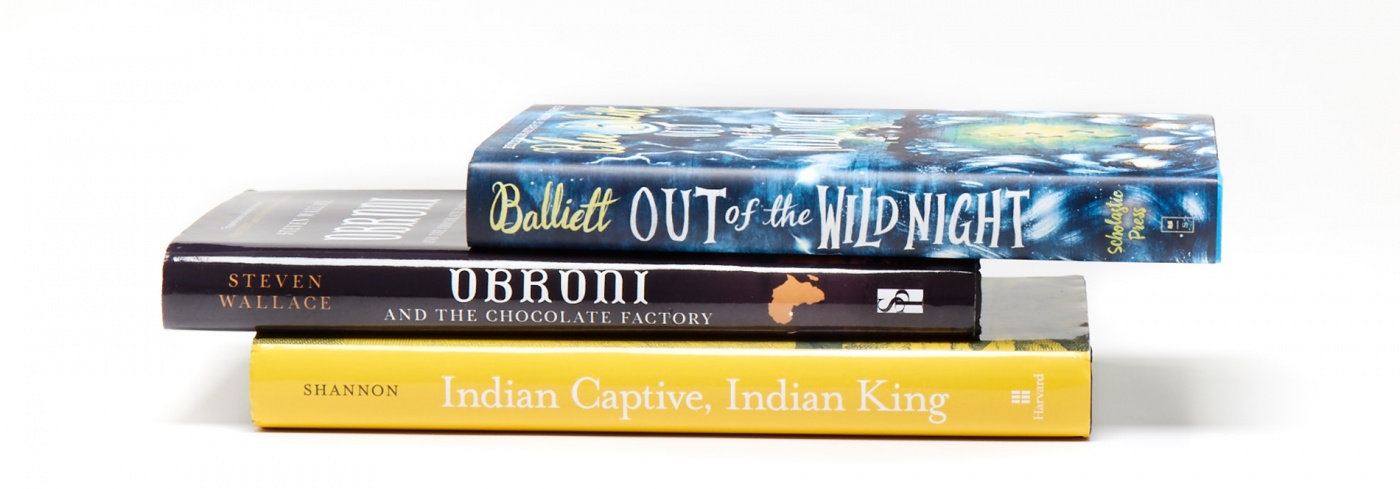Fresh Ink

Out Of the Wild Night
by Blue Balliett ’78 (Scholastic)
In this time-twisted adventure for middle-schoolers, Balliett takes her readers to haunted Nantucket. Mary Chase, Balliett’s spectral narrator, may have died a century ago, but she awakes to discover that someone is about to renovate her eighteenth-century house. With the help of the Old North Gang, a group of kids from all kinds of backgrounds, and a cast of wayward spirits, Mary must fend off developers who are gutting some of Nantucket’s best historic houses. This is Balliett’s seventh mystery for younger readers, a list that includes the best-selling Chasing Vermeer.
Indian Captive, Indian King: Peter Williamson in America and Britain
by Timothy J. Shannon ’86 (Harvard)
In 1758 Peter Williamson showed up in an Aberdeen, Scotland, tavern dressed as a Native American, explaining how to use a tomahawk. He claimed he had been kidnapped from Aberdeen’s waterfront as a boy, sent to America, and sold as an indentured servant. He was then captured by Indians on the Pennsylvania frontier, he said, but escaped and joined the British in the French and Indian War, during which he was taken prisoner. In Edinburgh, Williamson ran a coffee house and performed as “King of the Indians.” Here Shannon, a Gettysburg history professor, sifts through the facts to find what actually happened, while showing how such 18th-century captivity tales fueled the British public’s ideas about empire.
Obroni and the Chocolate Factory: An Unlikely Story of Globalization and Ghana’s First Gourmet Chocolate Bar
by Steven Wallace ’83 (Skyhorse)
This is the surprising story of how chocolate lover Steven Wallace built the Omanhene Cocoa Bean Company halfway around the world. It starts when Wallace falls in love with Ghana as a high school exchange student. Years later he wonders why the country that produces some of the world’s best cocoa beans couldn’t produce a fresh, world-class, exportable chocolate bar. Along the way Wallace, a former lawyer from Milwaukee, must navigate bureaucratic hurdles, the legacies of colonialism, and the ever-present threat of running out of money before the first Omanhene chocolate bar can meet its wrapper.



